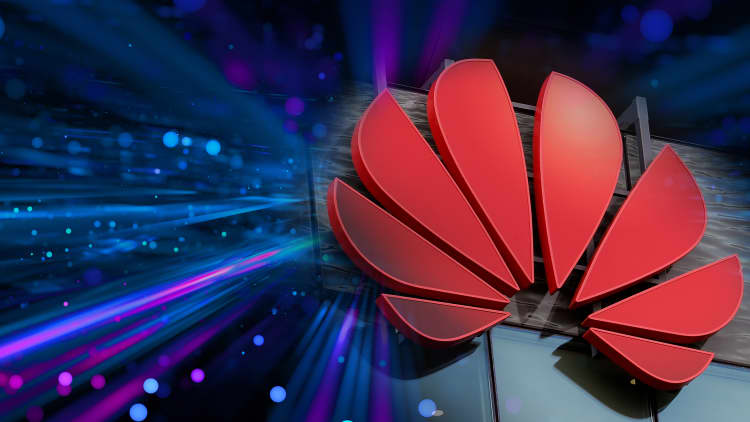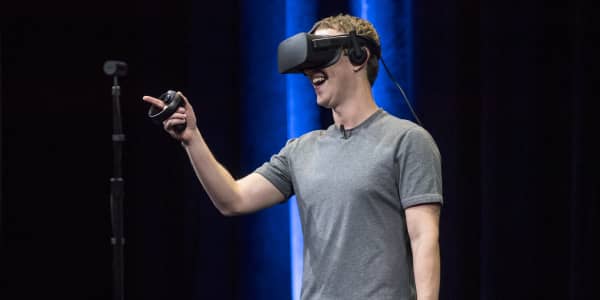Huawei launched a new 5G flagship smartphone lineup Thursday without pre-installed Google-licensed apps as the Chinese tech giant faces fallout from a U.S. blacklist earlier this year.
The Mate 30 series, which was unveiled at a launch event in Munich, will operate on an open-source version of Google's Android operating system. Huawei has been unable to license the latest version of Android due to restrictions imposed by the U.S. on the Chinese firm.
That means the new phones won't come installed with key Google apps, like Gmail, YouTube, Maps or the Play Store. Instead, Huawei will offer its own Android-based interface called EMUI10 and its own app store, which the company confirmed will allow downloads of apps like Facebook, Instagram and WhatsApp.
Some analysts warned the lack of Google software would put Huawei at a disadvantage against rivals like Samsung and Apple.
"I don't see how many users would make so many compromises with such a phone," Gartner Research Vice President Annette Zimmermann, told CNBC Thursday. "It's a lot of uncertainty."
U.S. officials placed Huawei on a so-called entity list in May that required American companies to get special licenses to sell their technology to the Chinese firm. The U.S. gave a temporary reprieve to Huawei in August, extending its ability to buy from American firms until mid-November. But a Google spokesperson told Reuters last month the reprieve does not apply to new products like the Mate 30.
CNBC reported in August that Huawei was pushing forward with the Mate 30 launch this month despite the U.S. restrictions. Huawei has been working on its own operating system called HarmonyOS, but a source told CNBC it's too soon to be put on the Mate 30.

The Mate 30 series is Huawei's first all-new phone series to launch since the U.S. ban was announced. The lineup includes the 6.62-inch Mate 30 and 6.53-inch Mate 30 Pro, available in both 4G and 5G models. The Mate 30 and Mate 30 Pro models will start at 799 euros ($883) and 1099 euros ($1,215), respectively, while the Mate 30 Pro 5G model will cost 1,199 euros ($1,326).
The new phones will "probably be available in Europe as early as next month," according to Richard Yu, CEO of Huawei's consumer business group.
Other key features of the Mate 30 include:
- A quad-camera system.
- Dark mode.
- Reverse wireless charging.
5G capability
The Mate 30 will be powered by Huawei's new Kirin 990 processor, an all-in-one artificial and 5G chip the company calls its "most sophisticated smartphone chipset launched to date."
5G is the next generation of wireless networks that promise faster download times and lower latency, meaning the time it takes for devices to communicate with each other. The rollout of the new networks has so far been limited in countries around the world, but smartphone makers are increasingly competing to unveil new 5G devices.
Samsung, the world's biggest smartphone seller, launched the Galaxy Note 10+ 5G in August and the Galaxy S10 5G in February. Huawei's Chinese competitors like Xiaomi have also unveiled new 5G devices this year. Apple, however, likely won't release a 5G device until 2020.
Huawei first overtook Apple as the second-biggest smartphone seller in the world in 2018. The company's European sales surged 66% year-on-year in the first quarter of the year, according to research from IDC.
—CNBC's Arjun Kharpal contributed to this report





